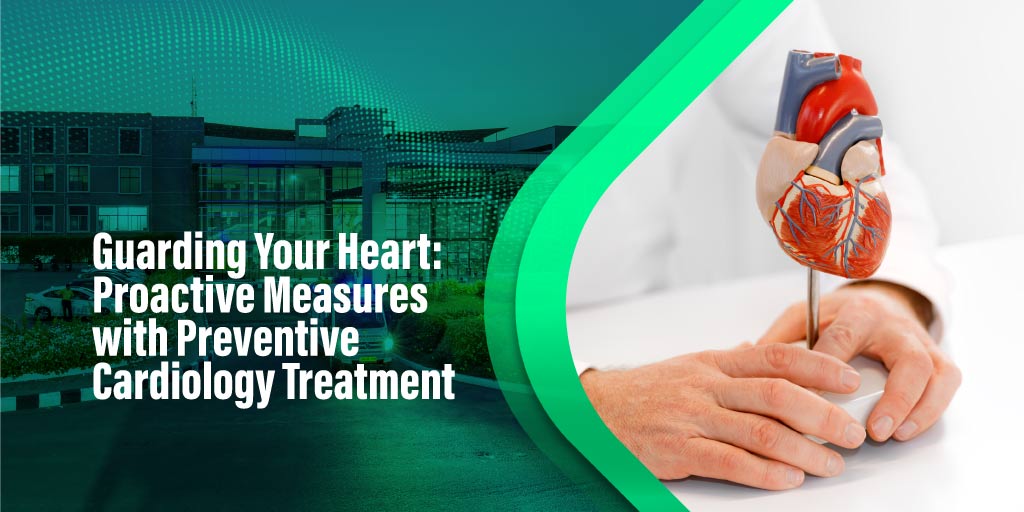Heart disease is one of the risky diseases which easily affects both men and women and thus recognizing heart disease symptoms is important. In the case of early detection, there are possibilities which can significantly reduce the impact of heart conditions and highlight the critical role of preventive care in combatting the health challenge. It is recommended to visit the best cardiologist in Coimbatore in case of any symptoms mentioned in this article. Let’s discuss how to maintain your heart health. In this blog post, we’ll explore the causes, symptoms, and treatment options for CAD, empowering individuals to understand and manage this condition effectively.
Begin with a definition of what is coronary artery disease.
One of the common and serious conditions which affects the heart’s blood vessels is the Coronary Artery Disease. At Karpagam Hospital, we are committed to providing comprehensive care for patients with CAD. What is Coronary Artery Disease (CAD)?Coronary Artery Disease occurs when the blood vessels that supply blood to the heart become narrowed or blocked by a buildup of plaque. This type of plaque is formed from calcium, fatty substances, cholesterol, and other blood-borne substances. As the arteries narrow, blood flow to the heart muscle is reduced, leading to various cardiovascular complications, including heart attacks and chest pain (angina).
What are the causes of CAD?
Here are the various aspects which contribute to the development of CAD, including:
- High cholesterol levels: Elevated levels of LDL cholesterol (“bad” cholesterol) can lead to the accumulation of plaque in the arteries.
- High blood pressure (hypertension): Persistent high blood pressure can damage the inner lining of blood vessels, making them more susceptible to plaque buildup.
- Smoking: Tobacco smoke damages blood vessels and accelerates the progression of atherosclerosis.
- Diabetes: Uncontrolled diabetes increases the risk of CAD by damaging blood vessels and promoting plaque formation.
- Obesity and a sedentary lifestyle: Being overweight or obese and lack of regular physical activity are associated with an increased risk of CAD.
- Family history: A family history of CAD or heart disease increases an individual’s risk of developing the condition.
Symptoms of CAD:
The symptoms of CAD differ based on the severity of the condition. Common symptoms include:
- Chest pain or discomfort (angina), often described as pressure, squeezing, fullness, or tightness in the chest
- Shortness of breath, particularly when you do physical activity or exertion
- Fatigue
- Nausea
- Dizziness or lightheadedness
- Sweating
- Pain or discomfort in the neck, jaw, throat, abdomen, or back
It’s important to note that some individuals with CAD may not experience any symptoms, a condition known as silent ischemia. It is better to consult a heart specialist before you conclude your disease.
What kind of treatment is required for CAD?
Treatment for CAD aims to relieve symptoms, prevent complications, and reduce the risk of heart attacks. Treatment options may include:
- Lifestyle modifications: You need to start treatment by embracing a heart-healthy lifestyle which includes a balanced diet, regular exercise, sleep well and stress management. You can include regular physical activity to strengthen your heart when it says activity it includes, walking, jogging, cycling and swimming which helps in reducing heart diseases.
- Medications: Medications to lower cholesterol, control blood pressure, prevent blood clots, and manage symptoms of angina may be prescribed. To maintain health even after taking the proper medications it is a balanced diet where you need to focus on consuming fiber and antioxidants foods and low saturated fats. With the intake of healthy foods, you can support heart health by reducing blood pressure and cholesterol levels.
- Medical procedures: In some cases, medical procedures such as angioplasty and stenting or coronary artery bypass surgery may be recommended to restore blood flow to the heart. Even after it is necessary to consider regular check-ups with your heart specialist. This way you can control early potential issues and allow timely intervention. It is advisable to avoid smoking and limit your alcohol consumption which lowers blood pressure and reduces heart problems.
- Cardiac rehabilitation: A structured program involving exercise, education, and support to improve cardiovascular health and reduce the risk of future cardiac events. You may follow the expert advice after getting a check-up which is staying active, eating well, avoiding tobacco and alcohol and embracing the heart-healthy journey.
Summary: It is essential to understand the signs of heart trouble and take preventive measures which reduce cardiovascular diseases and help you to live a fulfilling life. One of the best cardiology hospitals in Coimbatore, Karpagam Hospital, our team of cardiologists, cardiac surgeons, and support staff is dedicated to providing personalized care for patients with CAD. If you or a loved one is experiencing symptoms of CAD or has been diagnosed with the condition, we encourage you to schedule a consultation with our experts. Together, we can develop a comprehensive treatment plan to manage CAD effectively and improve heart health for a better quality of life.








